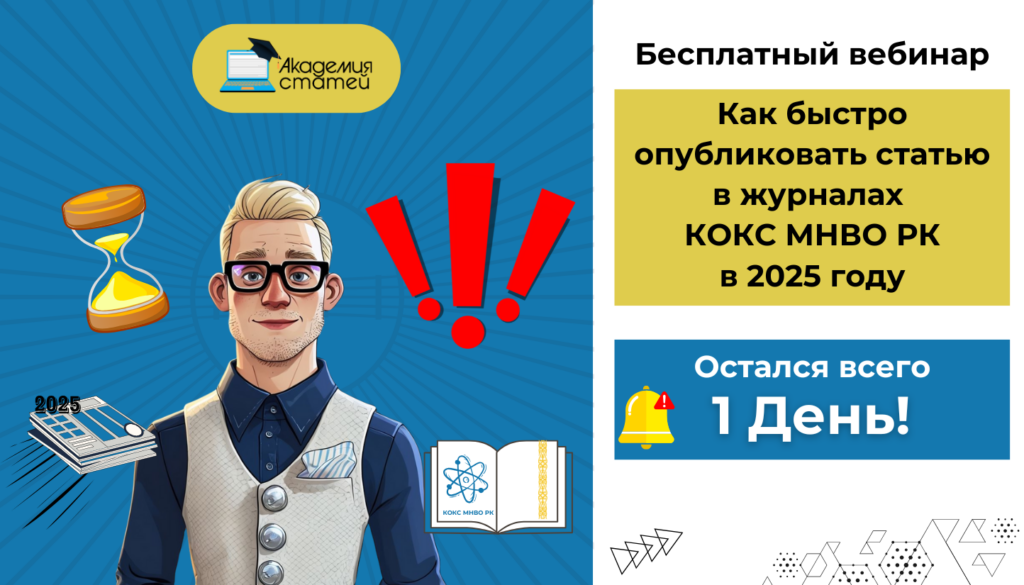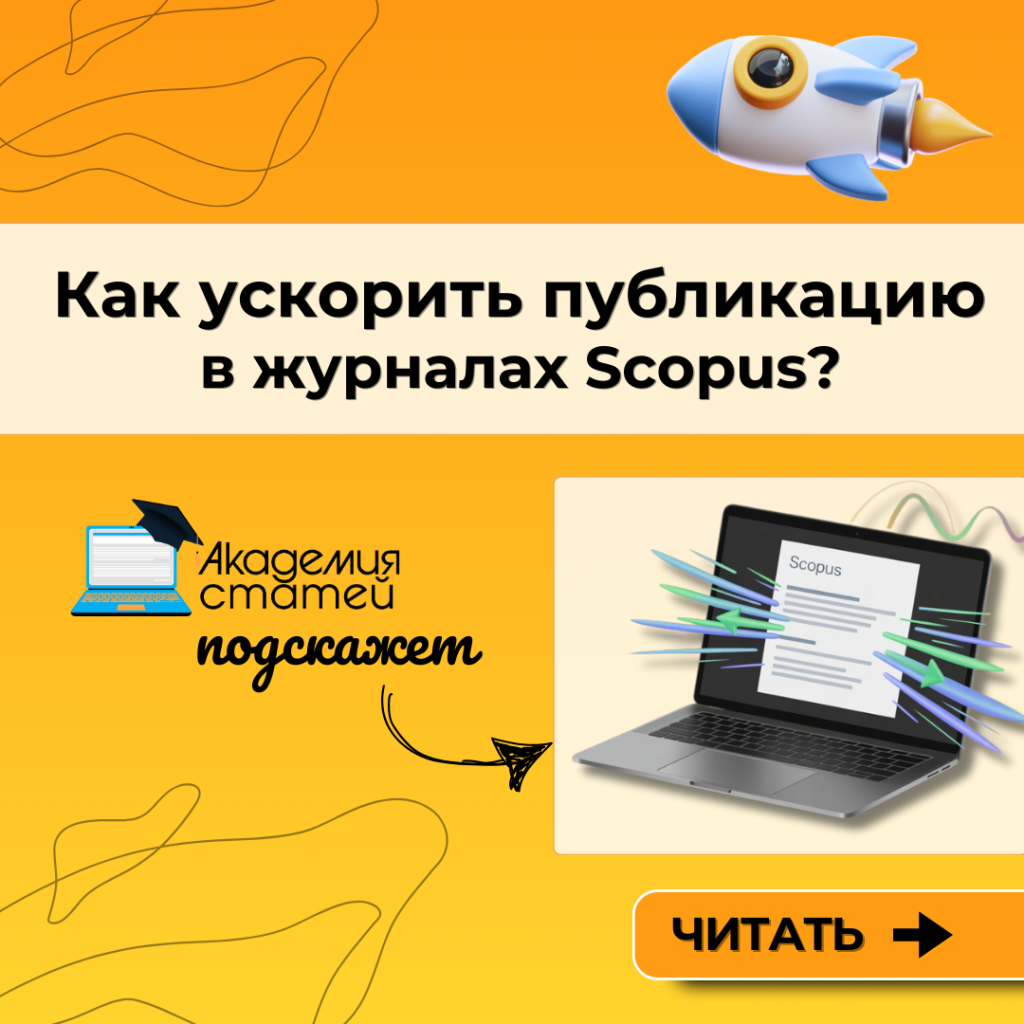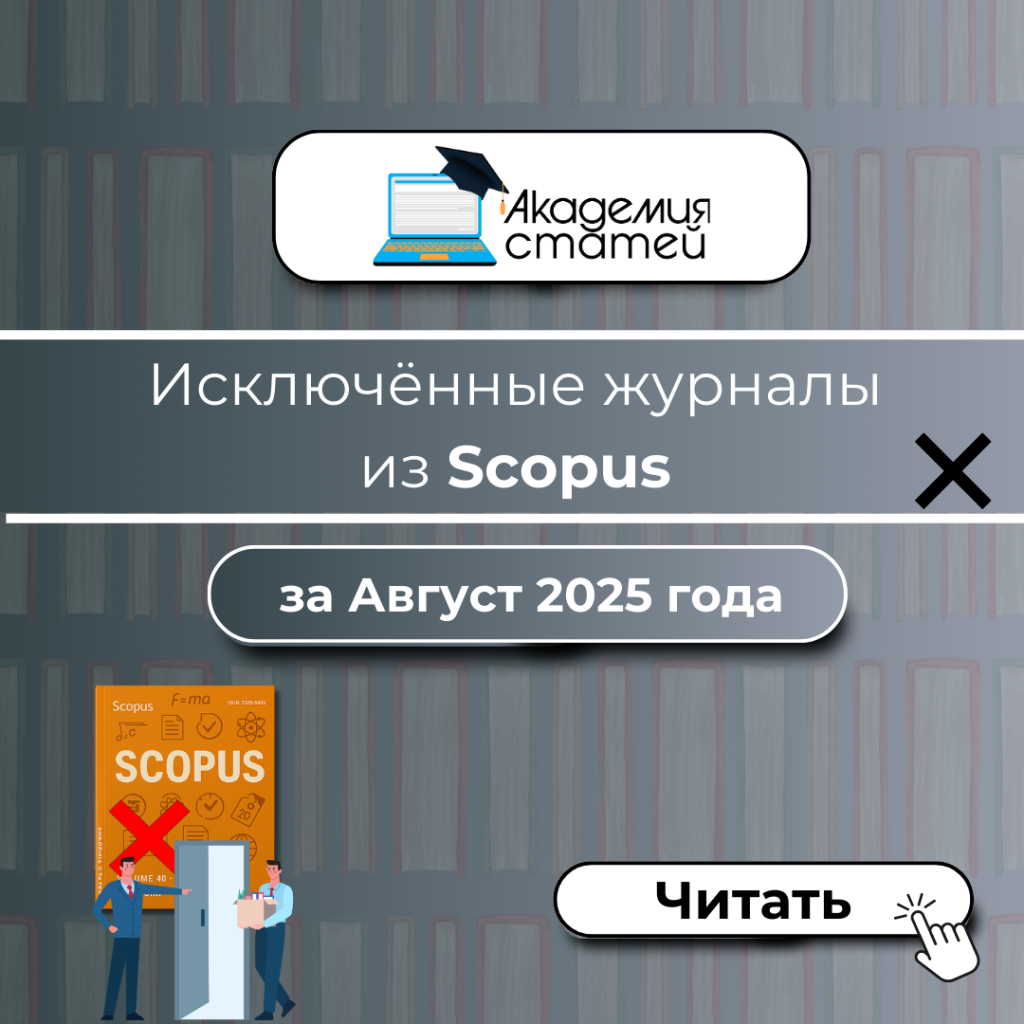Publication of articles in journals included in the List of the Committee for Quality Assurance in Science and Higher Education of the Ministry of Higher Education of the Republic of Kazakhstan (KOKS MNVO RK) is a mandatory requirement for dissertation defenses, the awarding of academic titles, and for academic reporting. Since the list only includes approximately 165 such journals, this places a significant burden on editorial offices and leads to long review queues.
Under these circumstances, editors are forced to promptly reject articles found to have even minor violations of the requirements, so as not to delay the process. As a result, many authors are rejected even before peer review, which often causes surprise and outrage. Today, we will briefly examine the main reasons why articles are rejected by journals affiliated with the Committee on the Review of Publishing and Publishing of the Ministry of Higher Education of the Republic of Kazakhstan, to help authors avoid common mistakes.
The main reasons for refusals in the journals of the KOKS MNVO RK
1. Inconsistency with the journal's subject matter
If an article's topic doesn't fit the journal's profile as stated on the website, the editors will immediately reject it without review. This is a common mistake among authors, who submit their materials "anywhere" without first reviewing the journal's guidelines.
2. The article is not submitted according to the journal template.
The most common reason for rejection is the article's failure to comply with the journal's template or the presence of serious structural errors: missing sections, incorrect table captions, inconsistent source formatting, etc. Each journal has its own Word template, posted on its website, which must be followed. Failure to comply with this requirement will result in immediate rejection.
3. Incorrect copyright information
Spelling errors in names, job titles, academic degrees, or missing contact information are all grounds for technical rejection. Journals carefully check the accuracy of the information provided.
4. Ignoring the instructions on the journal's website
Each journal has its own submission requirements. In most cases, articles must be uploaded through your personal account on the journal's website, along with all supporting documents: a cover letter, author agreement, and author information—all signed and in the correct format. It's also important to properly prepare the files for review, for example, by removing any personal information. Failure to meet these requirements will result in the article being returned without review.
5. High level of plagiarism
If a text contains uncited plagiarism or exceeds the acceptable similarity threshold (usually 20–25%), the editors will reject the material without the right to resubmit. The minimum uniqueness level must be 80%.
6. Using texts generated by artificial intelligence
This is a new reason for rejection: more and more journals are identifying and rejecting papers that were written entirely or partially using AI (ChatGPT and similar tools). In such cases, the author's level of scientific responsibility is diminished.
7. Language and stylistic errors
Poor translation, grammatical errors, and incorrect use of scientific terminology all significantly reduce the quality of an article and often lead to rejection, even if its scientific content has potential.
If you want, To ensure your article is not rejected, we invite you to a free webinar:

Conclusion:
As you can see, most rejections in journals affiliated with the KOKS MNVO RK are not related to the scientific idea itself, but to technical errors, non-compliance with requirements, or insufficient attention to detail. Avoiding these problems is entirely possible—it's enough to know the basic rules and approach publications professionally.
If you'd like to learn how to speed up publication, avoid rejections, and increase your chances of successful submission, we invite you to our webinar on March 19 at 7:00 PM.
We'll explain step-by-step how to properly prepare materials for the journals of the KOKSN MNVO RK, what editors pay attention to, and how to overcome the main challenges.
📌 Participation is free. Registration is required.





